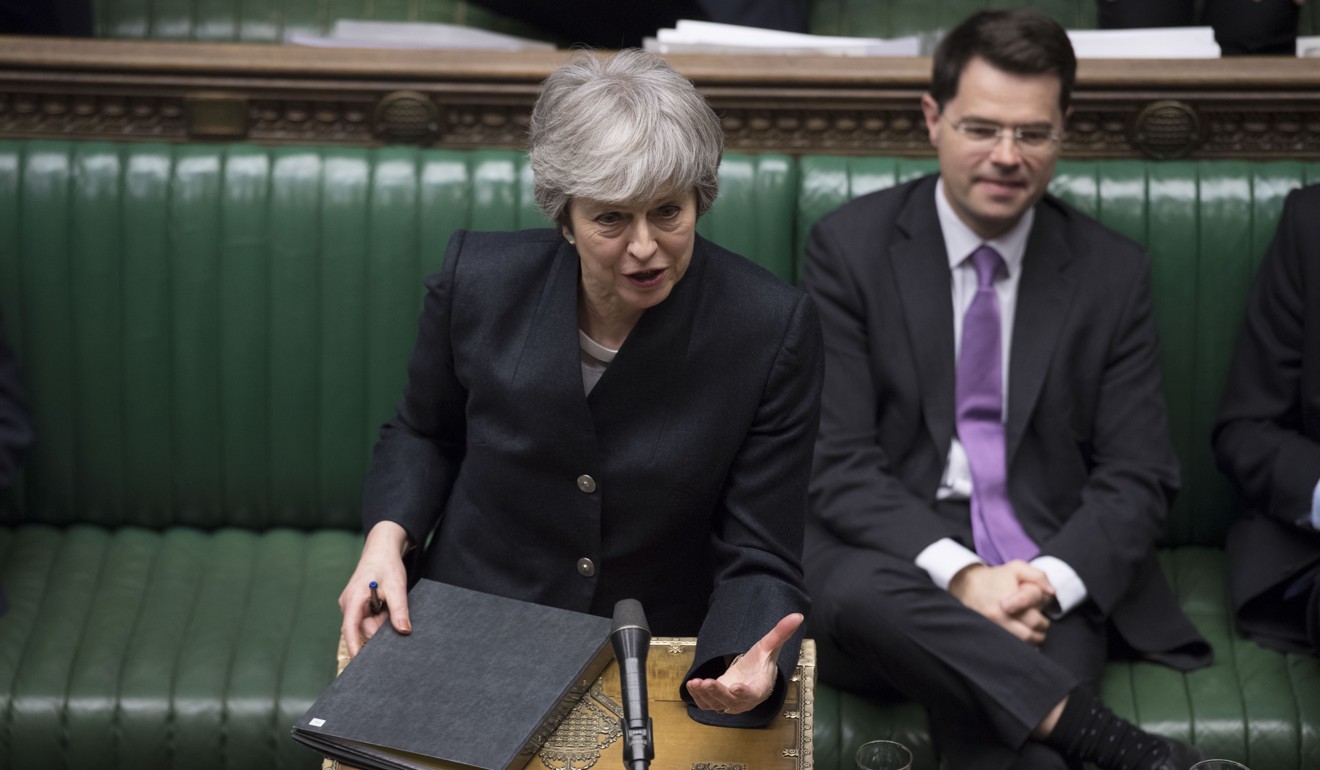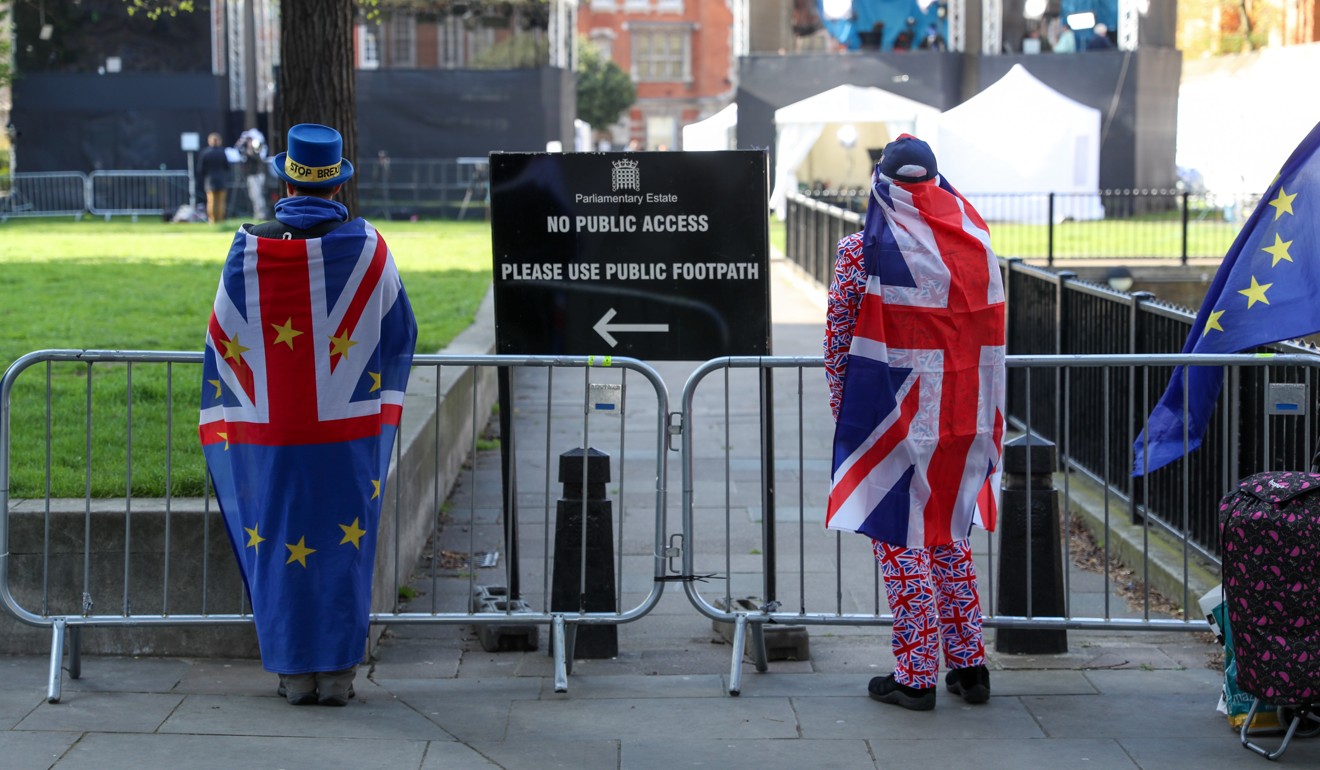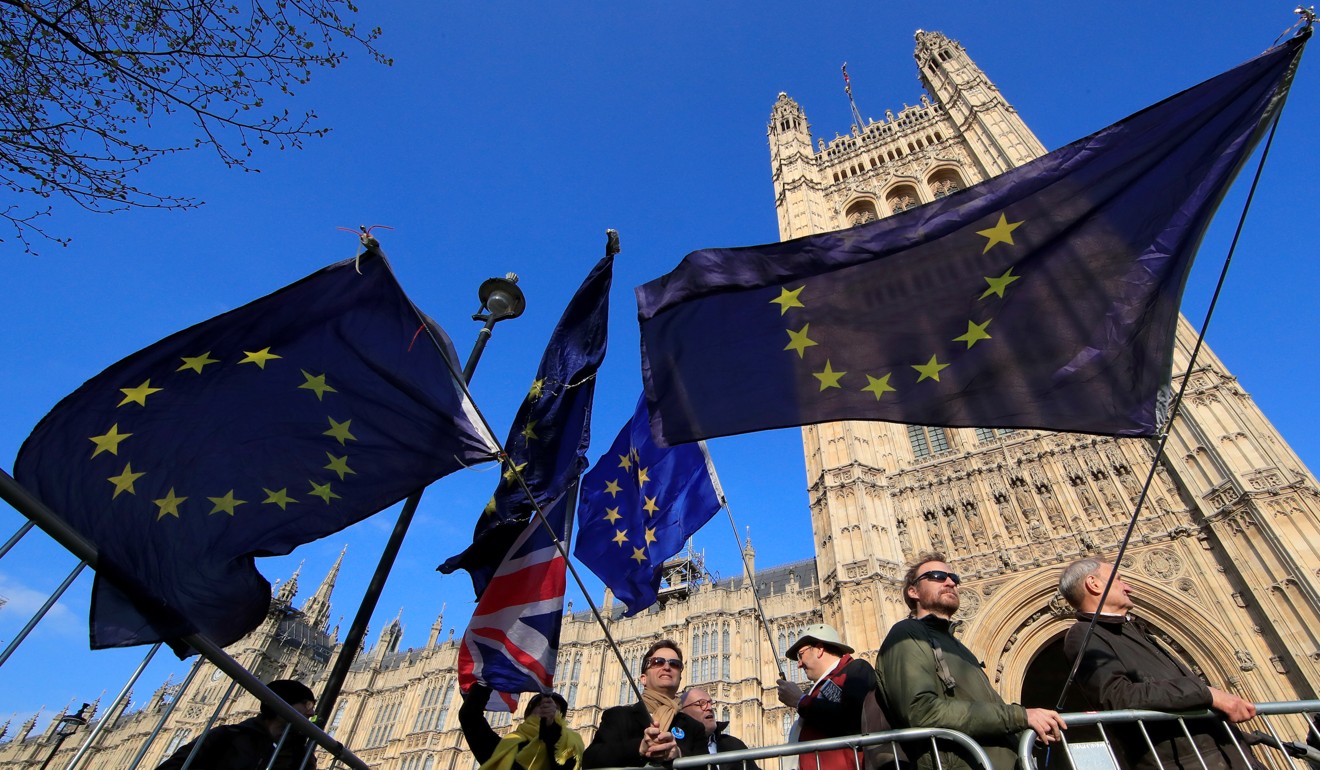
Britain stands down army of 6,000 no-deal Brexit staff – after spending close to US$2 billion
- 4,500 were new recruits with no clear role now that Article 50 has been extended to October 31
- Labour Party’s Hilary Benn calls this a ‘costly price’ to pay for Theresa May’s insistence on keeping no-deal departure from EU on the table

The British government has stood down an army of 6,000 civil servants who had been preparing for a no-deal Brexit, at an estimated cost of £1.5 billion (US$1.96 billion).
The civil servants who had been seconded from elsewhere will now return to their normal duties, but there is no clear role for an estimated 4,500 new recruits after Article 50 was extended until Halloween, October 31.

More than 16,000 civil servants in total have been working on Brexit.
The Labour Party’s Hilary Benn said it was a “costly price” to pay for Prime Minister Theresa May’s belligerent insistence of keeping a no-deal on the table.
“It was important to plan for all contingencies, but this is the huge cost of the prime minister repeatedly saying: ‘My deal or no deal’ when she knew that leaving without a deal was not in the national interest. This is one example of how Brexit is proving to be very costly for our country,” said Benn, chair of the influential Brexit select committee.
The Cabinet Office made the decision to reverse the no-deal plans at a meeting on Thursday morning.
“In common with the rest of government, we have stood down our no-deal operational planning with immediate effect. This morning, at a meeting chaired by the cabinet secretary, we agreed that the objective is to ensure we wind down our no-deal planning in a careful, considered and orderly way,” said a letter leaked to Sky News.
A Downing Street spokesman said: “As a responsible government, we’ve been preparing for over two years to minimise any disruption in the event of no deal. In light of this week’s developments, departments will make sensible decisions about the timing and pace at which some of this work is progressing given that the date we leave the EU has changed, but we will absolutely continue to make all necessary preparations.”
Brexiter Conservative MP Steve Baker branded the decision to stand down the no-deal operations as “sheer spite”.
May’s contingency operations have impacted nearly all departments in the civil service and elsewhere in the public sector including police, hospitals and schools.
Kent county council said it was standing down Operation Brock from Thursday night after local MP and May ally Damian Green said it should be “lifted as soon as possible” after the European council Brexit delay.
“If we are definitely not leaving at the end of this week then I see no reason to continue with Operation Brock and I hope it can be lifted as soon as possible,” he told Kent Online.

Highways England staff had deployed 80 officers from elsewhere in the country to patrol roads in Kent at a cost to the taxpayer of £119 per officer a night in hotels and food.
That amounted to £66,000 a week alone for Operation Brock, which was activated three weeks ago to guard against gridlock flowing from ferry delays in Dover.
Kent said it could reverse the contraflow system on a 14-mile (22.5km) stretch on the M20 over a weekend but it would take up to three weeks to remove the concrete barriers.
Elsewhere senior civil servants at the departments of health, transport, environment and the Home Office are in talks with politicians on what to do with the army of new recruits who may not be needed for six months.
In March the National Audit Office revealed that £1.5 billion had been allocated across Whitehall for no-deal contingencies under an umbrella Operation Yellowhammer project.
Its report put the Home Office at the top spender with £400 million allocated for new border force and other officials and IT systems, including the “settled status” app for EU citizens.

Michael Gove’s environment department was the next biggest spender. Only two weeks ago it was still recruiting for new staff in the US.
In February it emerged that it had turned to the private sector for a gold command centre in Whitehall that could stay open “potentially for two years”.
The emergency control centre was to have a team of officers producing briefing notes for ministers “at pace” and checking the “battle rhythm” for emerging urgent policy changes. These may not be needed now.
John Manzoni, the chief executive of the civil service and the cabinet secretary Mark Sedwill have at the same time written to the public affairs and constitutional affairs committee to confirm the scale of the no-deal operations in the civil service.
In January Mazoni revealed it had redeployed about 5,000 staff for no-deal contingencies.
But now the civil service bosses have disclosed that “across the civil service 16,118 EU exit posts have been filled”.
The Department of Health and Social Care said it was considering what to do with its medicines stockpiles following the latest Article 50 extension.
“Leaving the EU with a deal remains the government’s priority. We are considering the impact on our EU exit preparations and are working closely with our stakeholders to review our position,” a spokeswoman said.
The Department for Transport could also be left with a hefty no-deal bill for ferry contracts and a logistics hub in Belgium for stockpiling of medicines.
It also said it “reviewing contingency plans to ensure costs to the taxpayer are minimised and are already selling additional capacity” on the ferries “back to the market”.